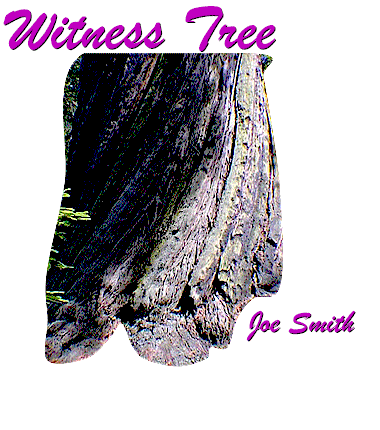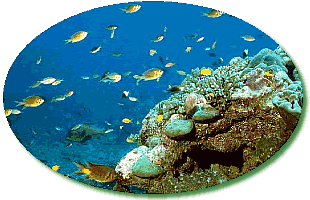
|
|
| First Home |
|
My friend Jim and I leave the lunch dishes on the porch of the weathered farmhouse and go to lounge in the shade of a plum tree. We sit with our backs against the trunk, roll cigarettes, watch the gray smoke drift up through the leaves. Light strikes the yellow skins of the plums, drops cryptic yellow messages onto the shiny bar of a chainsaw waiting to be sharpened. Jim, who loaned his file and guide to his nearest neighbor, a few miles away, is in no hurry to get them back. A jay squawks. An old snag along the haul road creaks. The afternoon is here, a dashing cavalier out for a stroll with his ladylove, the sun. To spare her shoes the indignity of spatters of noise, he whisks the great cape of silence from his shoulders. It flutters down over the fenced pastures, the redwoods off in the distance, the Calypso orchids growing in their shadows. Finches, attracted by the ripening red berries of a madrone, chitter along the smooth branches. A honeybee makes a pass at the butter dish. A black racer rustles the long, dry grass, and then the cape settles onto the earth. It's quiet enough to hear the mating rituals of gophers in their subterranean passageways, to hear cows clear across the pasture chewing their cud. The silence is so deep, we'll hear the Big Bang itself, billions of light years away, if indeed that primordial pop, a noisy fugitive from the jail of space and time, on the lam, looking for a hideout, ever shatters the laws of relativity and reaches us here. "Someone's coming." I cock my ear. Jim says the someone sounds like a four-banger, a Datsun, maybe. New, or recently overhauled, because the engine's pretty tight. A little blow-by in one of the valves. You could hold a piece of paper up to the tailpipe, see if it's sucking air, to be sure. Several minutes later, the brakes of the approaching car squeal on the steep, dusty road down to the farmhouse. A windshield flashes. A blue Sentra rounds the last curve by the slough, leaves the sun-hungry redwoods behind and wheels onto the gravel beside the barn. It's Jim's sister Lena and her husband, up from the city for a surprise visit. A burly fellow with the soft hands of an office worker, he asks me why they built the road so close to the river if the banks give way every winter in the rains. He and Lena had to wait half an hour to get waved through the one lane at the cave-in by the campground. It's because of the horses, I tell him, as we walk towards the porch. Back in the old days, teamsters and travelers needed a source of water. Lena, her arm draped over her brother's shoulder, eyes the cords of firewood stacked up in the yard to dry. "Mostly tanbark," says Jim, "cross-grained, and the devil to split, but a good burn. You should've told me you were getting yourselves a new vehicle. I couldn't figure out who was coming." "I love it here," says Lena's husband, glancing about, spreading his arms wide as if the landscape were a huge gift he were about to bestow upon us. "It's so quiet." He proceeds to elbow the quiet aside with news of coups d'etats in Africa and oil spills in the Orient, with observations about the secret cabal behind the curious decline in gold prices and criticism of the performance of "La Traviata" he and Lena recently attended at the zillion dollar opera house. Some diva. Her voice was like sandpaper in the upper register. You know "Forse [special character: e with / over it] lui"? The diva rubbed the lilt right off the aria. She sang Violetta as though she really were consumptive, her voice so thin the echoing refrain of the smitten tenor offstage drowned her out. And on "Addio del passato," a tragic soprano's dream song, she wheezed like a screechy asthmatic, milking every note, as though that would cause us to get out our handkerchiefs. Way too much breath, and vibrato. About an hour later it really is quiet. Lena's husband, temporarily talked out, fiddles with white petals of night-blooming jasmine climbing a trellis on the porch, absent-mindedly picking a few, teasing them apart. He seems unnerved by the silence he loves so much. Perhaps, like beauty itself, perfect silence can be overwhelming, more than people who aren't used to it can bear. I've heard painters talk about light. When the light is empty, it's possible to create the colors you want, true colors, unprejudiced by the light. But there are other times when the light isn't so much empty as full of nothing, and whatever tones painters mix on their palettes are drowned out, muddied, smeared by this deafening light. Silence may work the same way--be empty, or too full of nothing. "So, what next?" Lena, sighing, suggests a walk down the haul road to the lower pasture for a look at the ospreys. The migratory birds, who first built a nest at the top of an old, dead tree when she was a girl, have been coming back to it in spring ever since. She's watched scores of fledglings aloft on their maiden flights, riding the breezes over the meadows, shrieking as though delighted that their wings actually work. Jim and I return to the shade of the plum tree. The silence that steals back over us isn't the same as before. There's a tear in the cape. It will mend itself, but it will take a while, about as long as it takes the white contrail of a jet to vanish from an utterly blue sky. "Three years they've been married already, and Lena claims he's as passionate as ever. More." I think he's talking about the shattered silence, making up an excuse for the babbling stockbroker of a brother-in-law, who's holding hands with Lena now, the two of them disappearing into the dappled copse of alders by the gulch, where the haul road bends to enter the forest. Jim picks a blade of grass, wedges it between his thumbs. The shrill whistle he coaxes from the slender grass floats across the pastures. We listen for the echo. "Three years," he says. And then the silence washes around us again, a pool of it deep as a pair of mottled eyes just the colors of this orb, this lonely planet of ours, whirling in the blackness of space. We can't help looking into the seductive eyes, losing ourselves in them. Their depths draw us on, down into the uncertain, amniotic light where shipwrecked goddesses from ancient civilizations come to rest, down into the silent, sea-green deeps that were, after all, our first home. |
 |